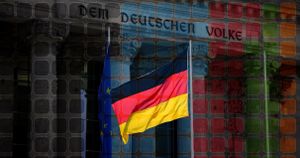Gold prices have been on the rise, sparking increased interest from investors and consumers alike. The surge has led to vibrant trading activity, yet it has also brought about new challenges, particularly for those purchasing gold online. Recent reports indicate consumers are falling victim to scams, where counterfeit gold is being sold as genuine, raising serious concerns about the integrity of the market.
One case highlighted the risks involved when a customer from Bắc Ninh purchased what was believed to be genuine gold. This individual acquired a 'pass back' piece of gold jewelry weighing 1 chi, which was marketed as Vàng Rồng Thăng Long by Bảo Tín Minh Châu. The price offered was lower than the market rate, lacking any supporting documentation, which should have raised red flags for the buyer. Upon attempting to sell the item at a local jewelry store, the deceptive nature of the purchase was uncovered—the gold was counterfeit, complete with cleverly forged branding. The buyer found themselves unable to recover losses after contacting the seller, who disclaimed any responsibility.
This incident is symptomatic of larger issues within the gold trading sector. Consumer protection agencies and reputable gold traders are raising alarms over the prevalence of fraudulent schemes facilitated through social media platforms and illegitimate websites. These entities often utilize copyrighted logos and images or alter names to mislead potential buyers.
Representatives from Bảo Tín Minh Châu confirmed the incident and underscored the importance of purchasing gold from recognized establishments with appropriate certifications and legitimate documentation. They highlighted the clear identification protocols for legitimate gold products, which include specific branding elements and anti-counterfeiting measures like unique color security labels and barcodes. These features are intended to assist consumers and facilitate smooth transactions.
The rise of online gold trading has heightened these issues. While many appreciate the convenience of avoiding long lines at physical stores, they also expose themselves to risks without undertaking proper checks. Bảo Tín Minh Châu advises consumers to always verify the reliability of platforms and look for official verification badges before making purchases online.
Rising gold prices are often viewed as a hedge against economic uncertainty, leading many investors and laypeople alike to diversify their portfolios with this precious metal. With Warren Buffett’s recent selling of stocks and hoarding cash raising eyebrows, many market participants are considering how such decisions impact the gold market. Berkshire Hathaway’s CEO has been discreet about his opportune silence, even with massive cash reserves topping $334 billion as of early 2024.
The dynamics of the investment market can shift rapidly, especially during turbulent economic times. Investors are left wondering whether Buffett’s actions indicate future volatility or offer insights about the health of the broader market. His recent correspondence implies dissatisfaction with expensive market conditions and reluctance to commit to what he perceives as unattractive opportunities, increasing the allure of gold as investors seek refuge.
This growing demand, paired with troubling scam prevalence, emphasizes the importance of due diligence when investing. While the excitement around gold ownership escalates with climbing prices, so too does the responsibility for buyers to be well-informed and cautious to avoid pitfalls. Given its historical volatility as both one of the first forms of currency and continued appeal as a 'safe haven' asset, gold remains under the scrutiny of savvy investors who know its worth can change with market sentiment.
Future forecasts for the gold market remain uncertain amid these challenges, but one thing is clear: vigilance is key for those entering the market now. Buyers should be educated on legitimate purchasing pathways and aware of the risks associated with online marketplaces. Gold may provide security, but buyers must secure their own safety as well.



